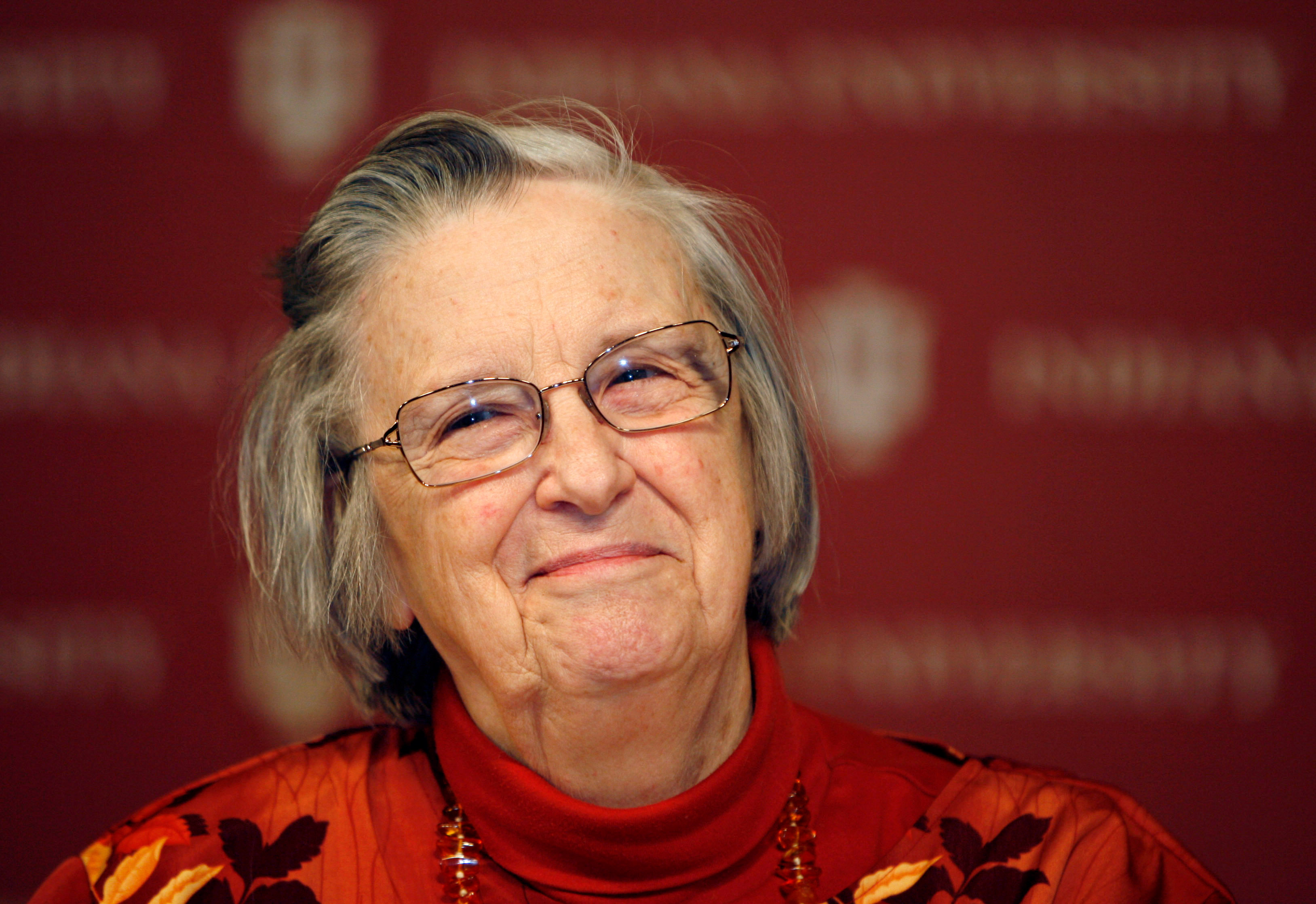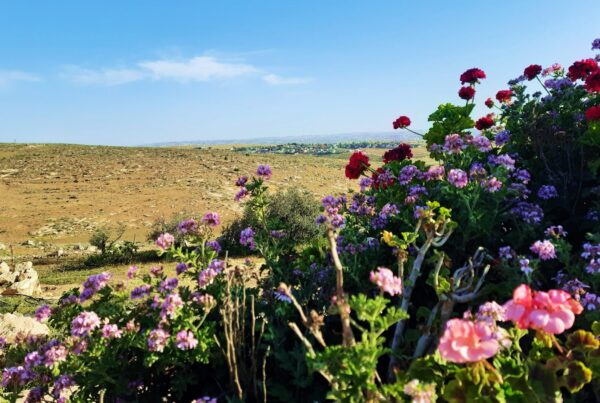By Derek Wall*
Elinor Ostrom (1933-2012) won a Nobel Prize in Economics in 2009 for her work on the commons. Her work is hugely inspiring but difficult to fit into established categorized. Some political ecologists have criticized her as too conservative or managerial. Here, I will attempt here to outline why, despite these criticisms, I feel Ostrom is a key thinker for political ecologists, and how her work relates to other approaches to political ecology.
Born in Los Angeles, she studied politics and then became a political economist working with her husband Vincent Ostrom (also an interesting thinker). She is best known for challenging the inevitability of ‘the tragedy of the commons.’ In 1968 the biologist Garrett Hardin argued that commons, collectively owned resources, would be destroyed. He claimed that without strong state control or privatisation over-grazing or over-fishing would degrade the commons. Elinor heard him speak about this thesis at the Bloomington campus of the University of Indiana where she worked. She and Vincent had studied commons, specifically water basins in California and found that, while sometimes tricky to do so, users could cooperate to conserve.

Elinor Ostrom. Source: Indiana University
She spent decades refining her investigation that basically dealt with the micro politics of human cooperation. If human beings could cooperate, they could agree to ration their use of land or water to promote conservation. She, at first, looked in detail at historical case studies of commons that had worked and contrasted these with others that had failed. This allowed her to come up with eight design features that tended to promote sustainable use. While she wrote many books and papers, Governing the Commons remains the essential outline of her work on the commons.
She was explicit in noting that both good social science and good natural science were necessary to promote ecological use. Vincent, had indeed been promoting this kind of political ecology, linking political institutions based on sets of effective rules to ecological management, since the 1940s. The details of the Ostrom project would take several books to explain but their work can be contrasted with the Malthusian political ecology of Garrett Hardin and similar thinkers, free market environmentalism, and ecosocialism. It might be said that Elinor and Vincent came up with a unique intellectual product. Elinor boldly stated ‘No panaceas’ and rejected slogans; it is thus the case that her political ecology cannot be given a straightforward label.

Cricklade common, Wiltshire, UK. Souce: Emily Blyth
The late 1960s and early 1970s is seen as the birth of political ecology. Environmental NGOs like Friends of the Earth and Greenpeace were created and political parties including the Ecology Party in the UK and Values Party in New Zealand were launched. Such political ecology was often strongly Malthusian, arguing that over-consumption and over-population were threatening the planet. Hardin advocated an authoritarian form of such Malthusianism, while he used the tragedy of the commons as a metaphor, his wider concern was to advocate a disciplinary solution to population growth. As Ostrom recalled in an interview in 2010:
Hardin gave a speech on the IU [Indiana University, Bloomington] campus, and I went to it, and he indicated the more general – but then it was that he really was worried about population. He indicated that every man and every woman should be sterilized after they have one child. He was very serious about it. […] I was somewhat taken aback: ‘My theory proves that we should do this,’ and people said, ‘Well, don’t you think that that’s a little severe?’ ‘No! That’s what we should do, or we’re sunk.’ Well, he, in my mind, became a totalitarian.
Elinor’s work contrasts starkly with such Malthusianism in that, while taking environmental problems seriously, she rejected authoritarian solutions, arguing that humans could potentially cooperate to maintain the environment. She observed, drawing upon the free-market economist Friedrich Hayek (also a Nobel prize winner), that there was an ecological knowledge problem, the state often lacked the information about local ecology that was held by communities on the ground in forests, fisheries and grazing ranges. Nick Hildyard and his colleagues produced a detailed left reading and celebration of Ostrom’s Hayekian ecology in their critique of the 1992 Rio environmental conference. They summarized Ostrom’s message for the left as one against the top-down technocratic ‘creation’ of commons by economists, development planners, legislators, or other “paternalistic outsiders”; and for a grassroots politics of resistance to enclosures, and of self-governance to regain livelihoods and “the mutual support, responsibility and trust that sustain the commons”.

Keywords of the commons. Source: Who Owns the World
Elinor might be conceptualised as a free-market environmentalist. Those who say ‘leave it to the market and use the price mechanism to maintain ecology’ can take some comfort in her words. Some of the most comprehensive academic accounts of her work have come from those associated to the free-market Hayekian right, such as Paul Dragos Aligica and Peter Boettke, from the Hayek Program for Advanced Study in Philosophy, Politics, and Economics at George Mason University. Yet they are aware of, and emphasize, the complexity and subtlety of Elinor’s work (and that of Vincent Ostrom). They are also correct to state that one of the ways she is most radical is in regard to the state.
Indeed, Elinor herself would have surely rejected the label of ‘free-market environmentalist’ quite strongly. It must be remembered that she looked to a range of alternatives beyond markets and states, rejecting both state control and privatisation in many circumstances. Indeed, her Nobel Prize lecture was entitled “Beyond Markets and States”. She suggested that simply seeing the state as an automatic solution is inadequate and also argued that the market is equally far from being an automatic solution to ecological ills. For her, politics moves beyond the state and market: we all do politics when we engage with others to solve common problems. Collective decision making by human beings at the grassroots was for her an essential but overlooked condition for democracy.
Much of the problematic of ecosocialism, in the sense of key questions asked or problems identified, is shared by Ostrom. She was critical of unlimited economic growth and over-consumption, unusual for an economist, or as she once pointedly told me a political economist. She saw her work as learning from and, in turn, resourcing if possible peasants, workers, indigenous people and others at the grassroots of ecological governance. Shared concerns with self-governance, feminism, diversity and practical peace-making links her work to a host of ecosocialist, ecofeminist, interventionalist and post-colonial political ecologies.

Elinor should be read carefully by those interested in radical change. Source: Pluto Press
So, one way of thinking about Ostrom’s political ecology, is to note that she examined the kinds of problems identified by ecosocialists and other radical political ecologists on the left, using some intellectual tools constructed by the right. She was educated in methodological individualism, many of her intellectual inspirations were Austrian i.e. heterodox but free-market thinkers like James Buchanan and Frank Knight (of the so-called Chicago school of economics) and Hayek. Equally her critique of mainstream economics drew upon figures like John R. Commoners and Herbert Simon, who were critical of free market traditions. I think recognizing these somewhat contradictory intellectual inspirations is an effective way of understanding her challenging discourse. However, Paul Dragos Aligica has argued that it is most useful to see her work as rooted in pragmatism, in the sense of the school of philosophy famous for thinkers like John Dewey, focused on practical problem solving. Dewey of course was a social reformer very much on the left.
None of us are immune to ideology, but any of us who met Elinor Ostrom will have noted her intellectual openness. Rather than having a discourse based on fixed principles, she started with a problem and then doggedly tried to answer it using increasingly sophisticated intellectual tools. In a certain sense, there is no Ostrom philosophy or Ostrom school, if one looks for an unambiguous set of principles that are defended to the death by advocates. Her question, every more important in an age of accelerating climate change, Donald Trump and allied catastrophes, was ‘How can fallible human beings achieve and sustain self-governing entities and ways of life as well as sustaining ecological systems?’
Ostrom was not on the traditional left and didn’t research how capitalism, imperialism and allied structural forces shaped our society and environment. Indeed, we know that rather than commons failing because of lack of cooperation, they were often simply stolen and enclosed. Nonetheless, her detailed and open work provides huge intellectual stimulation and practical guidance to creating solutions that are democratic, diverse, equal and ecological. Finally, I would argue that politics, perhaps especially ecological politics, is about intervention and praxis, and in her defence of the commons, she made a very powerful intervention against all those who would argue, like Garrett Hardin, that the commoners should have their commons taken from them.
Both Marx, who famously described the theft of English commons in Kapital and Ostrom who examined the management of commons, were, to my mind, inspirational political ecologists. Both Marx and Ostrom were endlessly inventive and fascinating thinkers. Despite, as with any thinker, the existence of contradictions and silences, I feel Elinor Ostrom’s work rewards careful reading. She teaches us that, apart from more macro factors, detailed institutional analysis –looking at the rules on the ground– are important for political ecology. Neoliberalism has been based on particular institutions such as the corporation. To move beyond it we need to construct collective and diverse institutions, Ostrom is a key thinker for how we can achieve this.
* Derek Wall is International Coordinator of the Green Party of England and Wales a post he shares with Jessica Northey. His new book Elinor Ostrom’s Rules for Radicals is available from Pluto Press soon http://www.plutobooks.com/display.asp?K=9780745399355&




One Comment